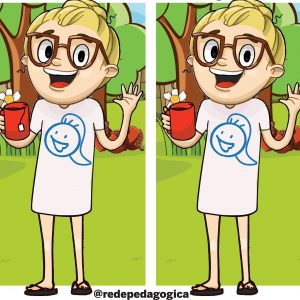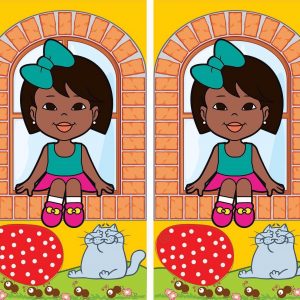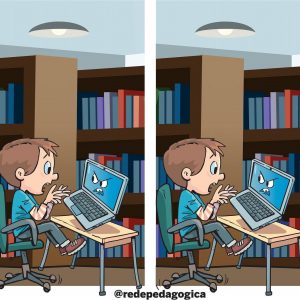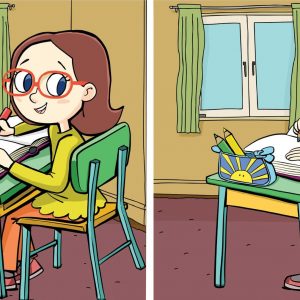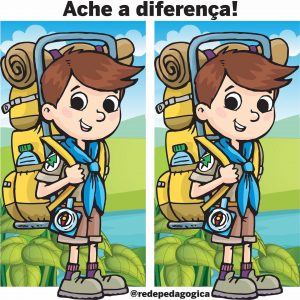Spot the Difference: A Playful Puzzle That Powers the Brain
At first glance, it’s just a boy playing tug-of-war in a sunny backyard. Birds perch on a tree, a vibrant garden blooms, and there’s not a care in the world. But wait—look again. Something’s changed. A leaf has disappeared. The rope has shifted. The shirt isn’t quite the same. Welcome to the joyful world of Spot the Difference—where keen eyes and sharp minds come out to play.
This classic puzzle game isn’t just for passing time. It’s a clever, interactive way to boost brainpower, improve attention to detail, and even develop emotional resilience. Whether you’re playing with kids or winding down after a long day, Spot the Difference is a low-tech tool with high-impact benefits.
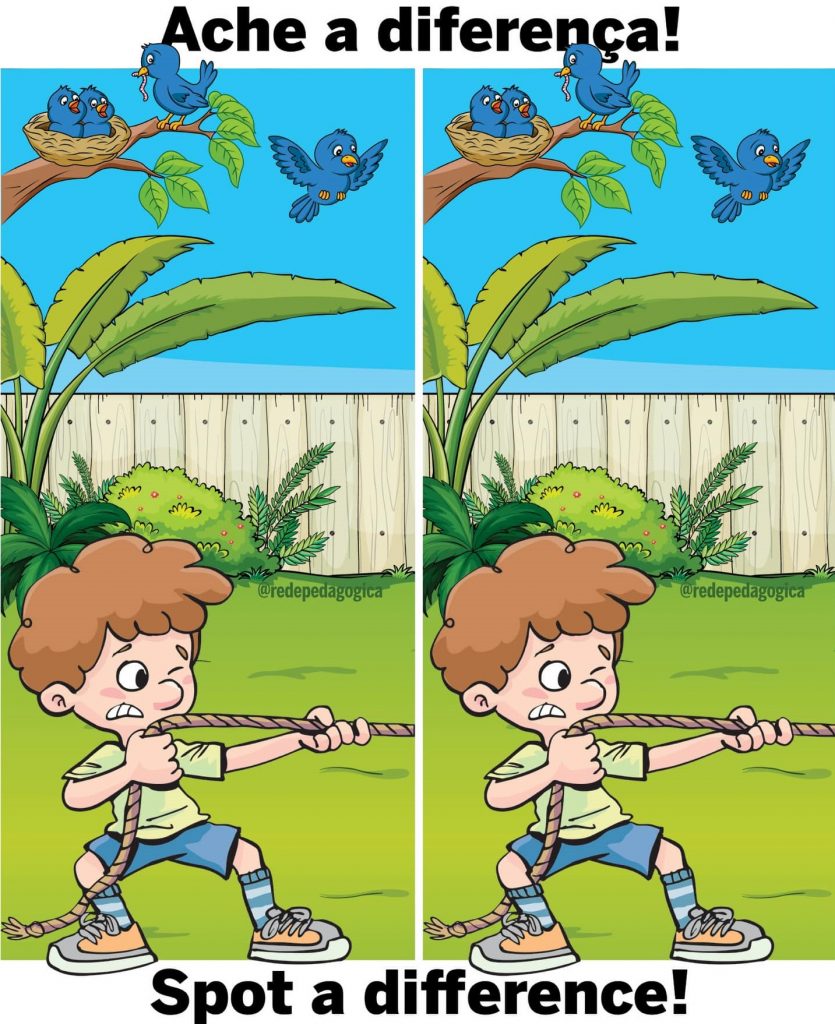
Why Spot the Difference Is More Than Just a Game
Sure, it looks like simple fun. Two side-by-side images and a handful of small differences to spot. But under the surface, your brain is firing on all cylinders—processing visual data, comparing patterns, retaining details, and filtering out distractions.
It’s visual problem-solving in disguise, and it doesn’t take much to get hooked.
The Cognitive Benefits of Spot the Difference Puzzles
Let’s dig into why these puzzles are so powerful when it comes to brain development and mental wellness.
Boosts Attention to Detail
You might not notice the missing leaf in the tree or the swapped sock color until you really zoom in. That’s the point. Spot the Difference teaches you to slow down, scan carefully, and focus on tiny details you’d normally overlook. Over time, this translates into sharper observational skills in real-life situations—from proofreading to multitasking like a pro.
Strengthens Visual Memory
Finding differences between two images requires short-term visual memory. Your brain is constantly bouncing between two nearly identical pictures, remembering what was where and how things looked just moments ago. The more you play, the better you get at visual recall—a skill that’s handy for learning, reading, and even driving.

Enhances Problem-Solving Abilities
Not every difference is obvious. Sometimes, you need to step back, change your perspective, or look again with fresh eyes. That problem-solving mindset is exactly what Spot the Difference nurtures. You learn to be patient, persistent, and creative when facing visual challenges—and that mindset carries over to everyday problem-solving too.
Improves Focus and Mental Endurance
We live in a world full of distractions. Spot the Difference puzzles gently retrain your brain to stay focused for longer. They teach you to tune out the noise and lock into a single task. Even 10 minutes a day can help build the kind of mental stamina that benefits everything from work to school to personal projects.
Perfect for Kids: Learning Through Play
If you’re a parent or teacher, Spot the Difference is a goldmine for child development. It’s a fun, screen-friendly way to build critical thinking skills and promote healthy cognitive growth.
- Develops Visual Discrimination: Kids learn to spot similarities and differences, improving early math and reading readiness.
- Enhances Fine Motor Skills (with printed versions): Circling, pointing, or highlighting differences helps improve hand-eye coordination.
- Teaches Patience and Persistence: Not all differences are obvious, and that’s a good thing. It helps kids learn how to try, fail, and try again.
And let’s not forget the boost in confidence every time they say, “I found one!”

Spot the Difference as a Family Bonding Activity
This is one of those rare games that spans generations. Grandparents, parents, and kids can all enjoy it together—no tech required, no rules to learn, and no competition needed (unless you want to add a timer for fun).
It sparks laughter, curiosity, and shared accomplishment. Plus, it’s a great way to unplug and reconnect through an activity that feels both calm and challenging.
Tips for Making It More Interactive
- Race the Clock: Set a timer and see who can find the most differences in 3 minutes.
- Take Turns: Pass the image around and let each person find one difference before moving on.
- Draw Your Own: Encourage kids to create two versions of their own drawing and challenge others to spot the changes.

The Benefits of Spot the Difference for Adults
Adults need mental stimulation too—and this game delivers without stress or screens. If you’ve been staring at spreadsheets or juggling emails all day, Spot the Difference gives your mind a refreshing break while still keeping it active.
- Reduces Stress: Focusing on a playful, low-pressure task calms the mind and lowers cortisol levels.
- Increases Mindfulness: The game brings you into the present moment, where your only job is to observe.
- Sharpens Workplace Skills: Strong attention to detail and quick problem-solving? Yeah, your boss would love that.
How to Spot the Difference More Effectively
Want to level up your skills? Try these quick tips:
- Scan systematically: Start from one corner and move across or down the image instead of jumping around randomly.
- Look for categories: Focus on objects, colors, shadows, and shapes—one category at a time.
- Take a break: If you’re stuck, walk away for a minute. Your brain will often spot the missing piece when you return with fresh eyes.
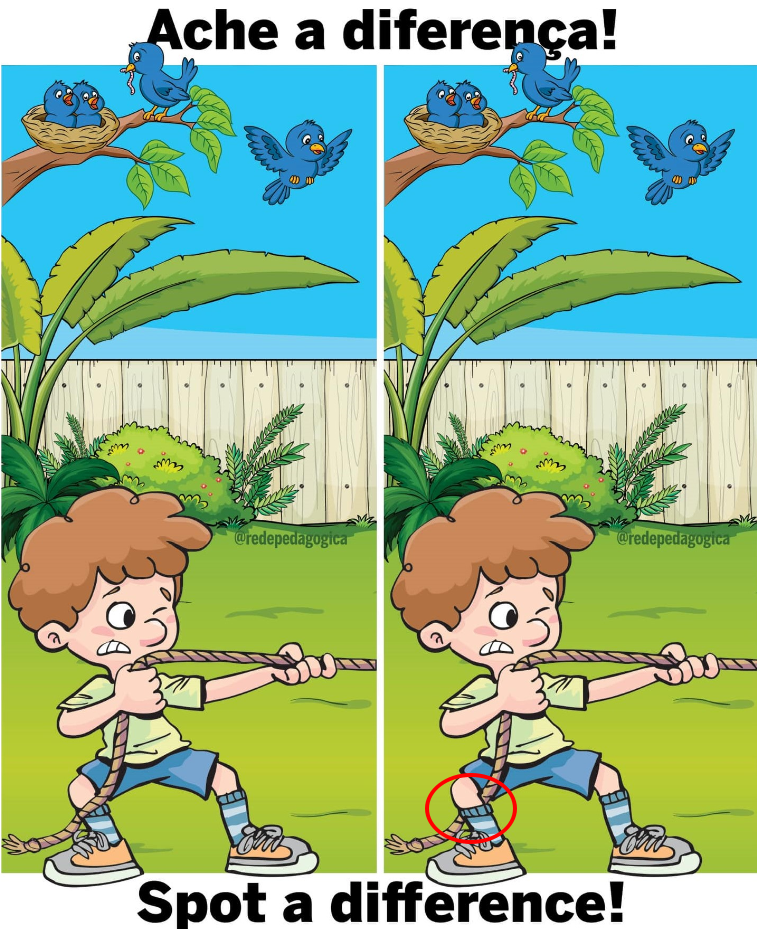
Conclusion: Play, Focus, Grow
Spot the Difference may seem like a simple puzzle game, but don’t be fooled. It’s a quiet powerhouse for cognitive development, visual acuity, and mindfulness. From kids learning through observation to adults sharpening their focus and reducing stress, the benefits go far beyond entertainment.
So the next time you come across two playful scenes—like a boy tugging on a rope under a bright blue sky—lean in, take a closer look, and see what you can find. You might just spot more than a difference. You might discover a better way to engage your brain, connect with loved ones, and enjoy a moment of calm curiosity in a chaotic world.
